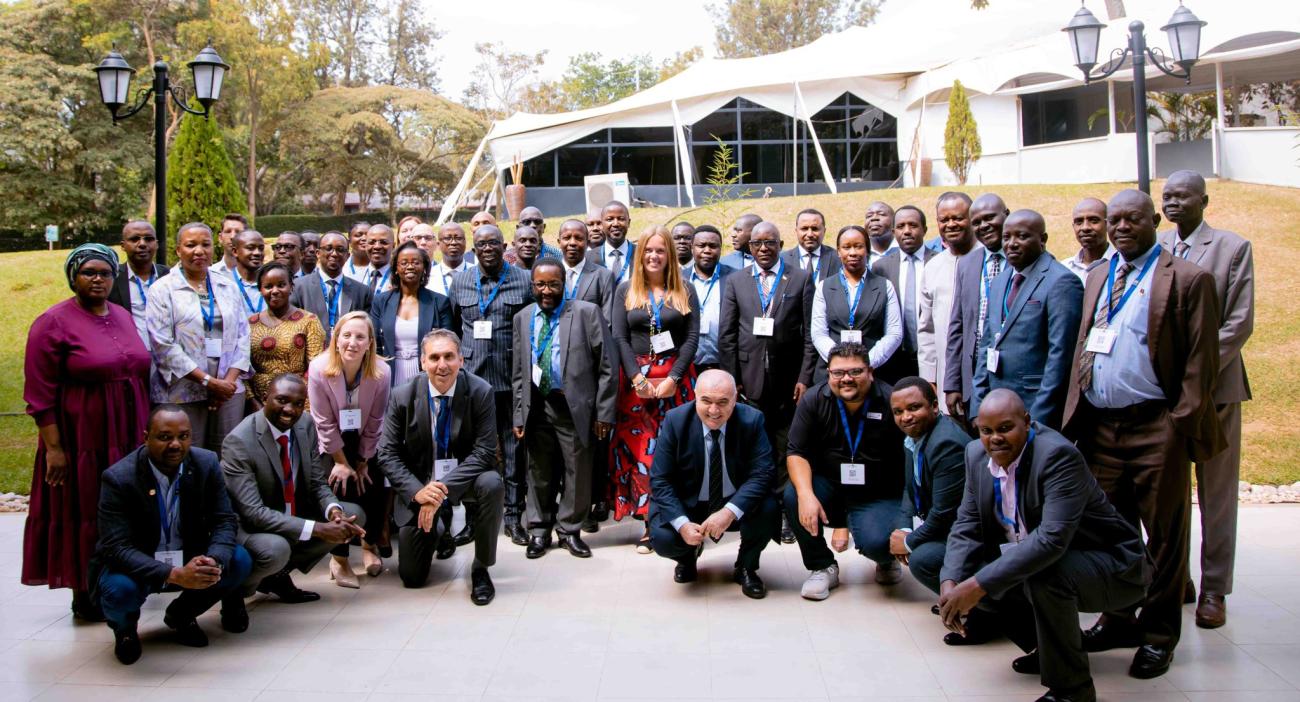On the nights of May 2nd and 3rd, 2023, Rwanda witnessed an unprecedented rainfall event in some parts of the West and Northern provinces, with one district recording 182.6mm of rainfall in a single day, according to the Ministry in Charge of Emergency Management (MINEMA)
High school student Adissa Uwisaba will not forget this moment “When the flooding started and debris all over, we evacuated the house and spent the night outside to avoid being washed away by heavy rains. The next morning authorities temporarily relocated us to churches, that day I missed school,” she said in an interview with MINEMA.
MINEMA said this was a historical moment as it surpassed records from the past five decades. The World Meteorological Report also indicates that the past eight years have been the warmest on record in Rwanda.
"This incident resulted in the loss of 135 lives, numerous injuries, and extensive infrastructure damage. These circumstances require our immediate attention," stated Philippe Habinshuti, the Permanent Secretary of MINEMA.
Mr. Habinshuti made these remarks during the launch of the newly initiated Joint Programme on Climate Change and Early Warning Systems. If effectively implemented across the region, the initiative holds the potential to mitigate the impact of climate change in Rwanda and the wider East African region.
Implementing the CREWS East Africa initiative involves collaborative efforts between the World Meteorological Organisation (WMO), the UN Office for Disaster Risk Reduction (UNDRR), and the World Bank. These agencies are jointly working closely with various regional entities, as well as the National Meteorological and Hydrological Services (NMHSs) and National Disaster Management Authorities (NDMAs) of Burundi, Kenya, Rwanda, South Sudan, Tanzania, and Uganda.
“This Joint Project is essential. Early warning systems are crucial in mitigating the impacts of climate change-related shocks by providing timely information and alerts to our vulnerable communities. They enable early action, helping to save lives, protect livelihoods, and reduce the overall socio-economic impacts of such shocks,” said Macklin Merchades, Joint Programme Focal point. Merchades also works for Tanzania Meteorological Agency (TMA)
The Joint Programme aligns with and bolsters the aspirations of the Early Warnings for All Initiative (EW4All) initiative, which UN Secretary-General António Guterres introduced at COP27. In Africa, 13 countries have been selected to pioneer this initiative. Its overarching vision is to ensure that every individual, particularly the most vulnerable, has access to timely and precise early warnings by 2027.
"Our ambition goes beyond the mere launch of projects and initiatives. We are committed to taking concrete actions. We must generate the political momentum to amplify investments in country-led early warning systems,” Ozonnia Ojielo, UN Resident Coordinator, said at the official launch of the Joint Programme.
“Governments and stakeholders need to demonstrate strong leadership and commitment by prioritising developing and implementing robust frameworks for Early Warning Systems. Through such investments, we can effectively tackle the challenges posed by disaster risk and climate change, ultimately safeguarding our communities from the devastating impacts," he emphasised.
The plan for the Early Warning for All initiative entails an initial investment of $3.1 billion between 2023 and 2027. It is widely acknowledged that countries with limited early warning coverage experience eight times higher disaster mortality compared to countries with extensive coverage.
The initiative aligns with Sustainable Development Goals (13), "Climate Action," which emphasises the urgency of taking decisive measures to combat climate change and its consequences. The Joint Programme also addresses the strategic priorities of the UN Sustainable Development Cooperation Framework. Its Outcome number two under the Economic Transformation pillar states “by 2024, Rwandan institutions and communities are more equitably, productively, and sustainably managing natural resources and addressing climate change and natural disasters.”




